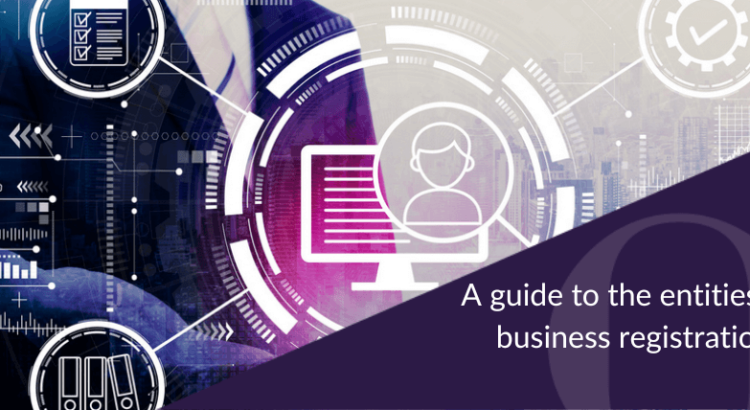In today’s competitive business landscape, attracting and retaining top talent has become a key consideration in Malaysia, particularly for startups. The ability to secure and nurture skilled professionals can significantly enhance a company’s growth trajectory.
This is where an employee share option scheme (ESOS) can help. A type of employee share plan, an ESOS offers an enticing solution that aligns the interests of an employee with the success of their company.
This article delves into the advantages of ESOS, exploring how equity compensation can be a powerful tool for attracting, retaining and engaging top talent in Malaysia.
Understanding employee stock options in Malaysia’s competitive landscape
Malaysian business leaders continue to face the challenge of skills shortages. Despite efforts by the government and private enterprises, many of Malaysia’s employers, particularly those in the technology sector, face difficulty filling vacancies.
Thirty-seven occupations are listed in the latest Critical Occupations List (MyCOL), an annual report commissioned by the Malaysian Government. From managing directors and CEOs to earth-moving operators and truck drivers, the list spans a range of industries where skills shortages are critical.
Given the talent shortages, attracting and retaining top talent is a priority for businesses in Malaysia. Therefore, many are exploring incentives such as employee share option schemes (ESOS) as a way to reward and incentivise employees and engender loyalty.
An ESOS gives employees the option to purchase company shares at a predetermined price, offering a unique opportunity to become shareholders themselves. This connection between employee and company ownership fosters a sense of belonging.
Nora Jasmine Lai, Operations Manager of Employee Plan Services, BoardRoom Group, explains, “The purpose of these programs is to align the company’s goals with employee incentives by allowing the employee to become a part owner of the company and participate in the growth of the business.”
The schemes can be complex and challenging to understand. For example, an ESOS has similarities to an employee share ownership plan (ESOP), though the two vary in terms of the structure, governance, purpose and nature of ownership. However, they broadly aim to achieve the same thing, which is to provide long-term incentives to employees.

Employee benefits in Malaysia: why employers should consider ESOS
Schemes such as ESOS and ESOP provide long-term value for employers by inspiring loyalty among employees. By signing an employee up for the scheme, an employer is essentially saying to them that while they are committed to the growth of the business and contributing to it, they will be rewarded by becoming a shareholder.
As more employees join, the talent within the company grows, strengthening it over time.
Employee turnover costs more than you think
In a competitive landscape, no business leader wants to lose good employees. Experienced employees hold institutional knowledge that can be lost when they leave which can disrupt a business. They are also more likely to have established important relationships with customers and other staff. On the other hand, hiring and training new employees takes time and money. High turnover can destabilise employees, damage a business’s reputation and harm customer relationships.
A report from Employee Benefit News found that it can cost a business more than 30% of the employee’s yearly salary to replace them.
Employee retention comes down to many factors. Employees want to feel valued, engaged and an important part of the team. TINYpulse reports that those workers who feel they have control over their careers are more likely to stay than those who don’t. Employees who are dedicated to their workplace achieve more and are 87% less likely to leave their workplace than those who aren’t. Finally, employees who report they are ‘engaged and thriving’ are much less likely to be searching for other jobs than those who are not.

How employee share option schemes reduce turnover and benefit employees
There are many benefits of employee share option schemes. They give employees a sense of ownership and their interests become more aligned with other shareholders. Employee engagement also increases as the schemes motivate them to be more productive and focus on overall business success rather than just their day-to-day responsibilities.
It is not just the company that benefits. “The financial gains from an ESOS are defined by the difference between a company’s stock price and the exercise price of the ESOS, which is fixed when ESOS are granted,” Nora says. “Therefore, the higher the stock price, the larger the financial gain. Employees who are granted an ESOS are incentivised and motivated to act in the company’s interest. This, in turn, improves the investor’s perception of the company’s ability to earn and grow its profits in the future, which increases the demand of the company’s shares and therefore, its share price.”
The higher the share price, the larger the financial gain for the employee. Through ESOS, an employee’s financial growth is directly tied to the company’s stock market performance, serving as a strong motivator for employees to contribute to the company’s success.
ESOS in Malaysia: what are the implementation challenges?
There is no doubt that schemes such as ESOSs and ESOPs are valuable tools for employers to attract and retain talent. There are also many benefits to the employee in such a scheme. However, establishing and implementing any type of employee share scheme can be complicated, and the administration and maintenance of such schemes can be onerous for already busy managers and business owners.
“When businesses implement an ESOS, one of the key challenges is helping employees understand how it works,” says Nora. “From the employer’s perspective, managing an ESOS program involves hefty administrative tasks, such as preparing the grant letters, tracking the ESOS data, communicating information to the employees and addressing any questions from time to time.”
The benefits, however, far outweigh the challenges. As we have touched on, setting up and maintaining a scheme can help retain valuable employees, attract top talent and improve productivity. So, how do businesses overcome the challenges and enjoy the benefits of an employee share option scheme?
Administering an employee share option scheme
When establishing a scheme such as an ESOS or ESOP, a company will engage a corporate services provider so they can set up a platform where employees can access useful information on their ESOS holdings.
It is important for businesses to have a platform that effectively implements and maintains the scheme. The platform should enable the employee to easily check on their holdings and guide them on how to transact and update their information. Clear communication about the scheme is also vital so all employees are constantly working towards common goals.
Many businesses choose to outsource the administration of this portal or platform so they can focus on their core objectives. “A good ESOS platform should be easy to understand and easily accessible,” says Nora. “At BoardRoom, we have partners covering end-to-end plan designs, lawyers who are skilled in this area, and administrative services to oversee the schemes on behalf of the company.”
BoardRoom’s comprehensive, user-friendly and secure platform, EmployeeServe, keeps the employees engaged with their company’s employee share scheme.

How BoardRoom can help
An ESOS is an innovative and compelling way to attract, retain and engage exceptional employees. By linking employees’ success with that of the company, an ESOS helps create a shared goal of growth, prosperity and long-lasting success.
As the business ecosystem in Malaysia continues to evolve, embracing an ESOS could be the key for businesses looking to secure talent and unlock a competitive advantage.
BoardRoom offers tailored solutions to help companies design, implement and manage effective ESOS and ESOP programs. Our software, EmployeeServe, is easy to use and is mobile optimised so that employees can access the portal 24/7 with the latest real-time data on their holdings. The software’s security features also offer peace of mind to employers and employees.
BoardRoom’s team is available to answer questions and offers personalised support to discuss employee share plans such as ESOPs, ESOSs and other employee stock option plans.
Contact our team and discover how we can support your business today.
Related Business Insights
-

08 Jul 2024
Guide to Filing Annual Returns in Malaysia
Ensure compliance and maintain your business's integrity in Malaysia with this guide on filing annual returns effic …
READ MORE -

24 May 2024
10 Advantages of Outsourcing Your Payroll Services
Explore the benefits of outsourcing payroll and discover how outsourced payroll providers like BoardRoom can stream …
READ MORE -

24 May 2024
IPO Application: A Guide to Listing Your Company in Malaysia
Navigate your IPO application in Malaysia effortlessly with BoardRoom's expert support and unlock opportunities on …
READ MORE





























